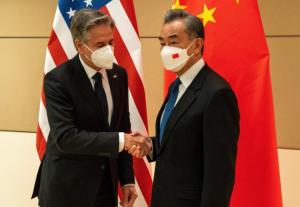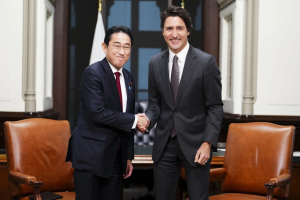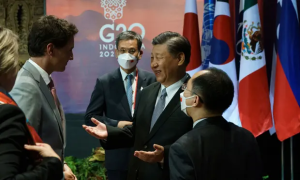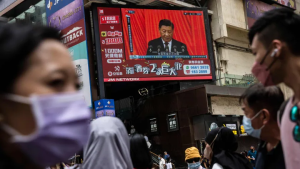Prof. Yves Tiberghien, Prof. Heidi Tworek and MA Candidate Panthea Pourmalek call global data governance “fragmented and inadequate”
“Many economic frameworks and partnerships try to address small slices of the issue. But only very few people and companies, or even governments, can keep up with that many agreements and efforts… Ultimately, it is citizens who lose out — in their privacy, their human rights and their share of any potential benefits.”
Watch: Dr. Dan Slater’s COMP-CAN Colloquium lecture, “From Development to Democracy: The Transformation of Modern Asia”
Dr. Dan Slater’s COMP-CAN Colloquium lecture, “From Development to Democracy: The Transformation of Modern Asia” is now available to watch on our YouTube channel.
Visiting Prof. Swaran Singh writes on US Secretary of State Antony Blinken’s visit to China
“While Washington appears to see hope for better ties under a new crop of Chinese leaders,” says Prof. Singh, “it’s not yet clear that Beijing sees the situation similarly.”
Prof. Xiaojun Li’s research on Chinese public opinion of the West featured in South China Morning Post
Chinese people hold a much more favourable opinion of European countries than they do of the United States, Prof Xiaojun Li’s survey found.
Canada gained “first-mover advantage” in Japan trade deal, says Prof. Yves Tiberghien
Prof. Yves Tiberghien was asked to comment on Japanese Prime Minister Kishida’s recent visit to Canada to discuss economic partnerships, clean energy, and the invasion of Ukraine.
Op-Ed: Prof. Xiaojun Li writes about the findings of his recent study on Chinese public opinion of developed countries
Prof. Xiaojun Li’s surveys from before and after the 2020 US presidential election reveal “patterns [which] suggest that the underlying trends in Chinese public opinion were stable during those three months and will likely remain so in the foreseeable future.”
Prof. Yves Tiberghien comments on Canada’s new roadmap for engaging with Japan and South Korea
Professor Yves Tiberghien said recent leadership changes in Japan, South Korea, and China require Canadian stakeholders to pay close attention – especially because the changes coincide with significant social discontent in all three countries.
Prof. Yves Tiberghien calls China’s COVID-19 policy “unsustainable” in CBC interview
“It’s difficult in the sense that [China has] reached an impasse, where they have forced everyone to do perpetual tests, to have sudden quarantines at home, lockdowns, and nobody can plan their life. The economy is in freefall,” says Prof. Tiberghien.
Prof. Kathryn Harrison discusses what Canada and China co-hosting COP15 means for climate politics
Prof. Harrison reminds readers that “it’s easy to underestimate how many people there are at these meetings who are deeply committed to trying to move things forward in a positive way and who really care about climate and biodiversity,” despite the political tension present.
Prof. Yves Tiberghien interviewed about Chinese COVID-19 policies and protests
On the difficulty of President Xi Jinping’s COVID-19 decisions moving forward, Prof. Tiberghien says that “the exit is difficult because if they give in to the public to save the legitimacy of the regime, they’re going to have a big number of cases and of deaths.”









